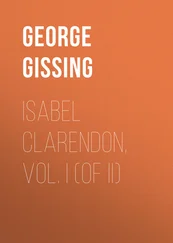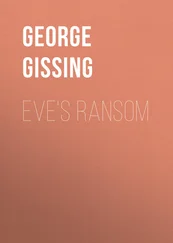George Gissing - Demos
Здесь есть возможность читать онлайн «George Gissing - Demos» — ознакомительный отрывок электронной книги совершенно бесплатно, а после прочтения отрывка купить полную версию. В некоторых случаях можно слушать аудио, скачать через торрент в формате fb2 и присутствует краткое содержание. Жанр: foreign_prose, literature_19, foreign_antique, на английском языке. Описание произведения, (предисловие) а так же отзывы посетителей доступны на портале библиотеки ЛибКат.
- Название:Demos
- Автор:
- Жанр:
- Год:неизвестен
- ISBN:нет данных
- Рейтинг книги:3 / 5. Голосов: 1
-
Избранное:Добавить в избранное
- Отзывы:
-
Ваша оценка:
- 60
- 1
- 2
- 3
- 4
- 5
Demos: краткое содержание, описание и аннотация
Предлагаем к чтению аннотацию, описание, краткое содержание или предисловие (зависит от того, что написал сам автор книги «Demos»). Если вы не нашли необходимую информацию о книге — напишите в комментариях, мы постараемся отыскать её.
Demos — читать онлайн ознакомительный отрывок
Ниже представлен текст книги, разбитый по страницам. Система сохранения места последней прочитанной страницы, позволяет с удобством читать онлайн бесплатно книгу «Demos», без необходимости каждый раз заново искать на чём Вы остановились. Поставьте закладку, и сможете в любой момент перейти на страницу, на которой закончили чтение.
Интервал:
Закладка:
‘I’m so sorry!’ said the girl, whose voice was as sweet as her face was pretty. ‘We wanted her to come for croquet. Yet I was half afraid to come and ask her whilst Mr. Alfred was at home.’
She laughed, and at the same time blushed a little.
‘Why should you be afraid of Alfred?’ asked Mrs. Waltham graciously.
‘Oh, I don’t know.’
She turned it off and spoke quickly of another subject.
‘How did you like Mr. Wyvern this morning?’
It was a new vicar, who had been in Wanley but a couple of days, and had this morning officiated for the first time at the church.
‘What a voice he has!’ was the lady’s reply.
‘Hasn’t he? And such a hairy man! They say he’s very learned; but his sermon was very simple—didn’t you think so?’
‘Yes, I liked it. Only he pronounces certain words strangely.’
‘Oh, has Mr. Eldon come yet?’ was the young lady’s next question.
‘He hadn’t arrived this morning. Isn’t it extraordinary? He must be out of England.’
‘But surely Mrs. Eldon knows his address, and he can’t be so very far away.’
As she spoke she looked down the pathway by which she had come, and of a sudden her face exhibited alarm.
‘Oh, Mrs. Waltham!’ she whispered hurriedly. ‘If Mr. Wyvern isn’t coming to see you! I’m afraid to meet him. Do let me pop in and hide till I can get away without being seen.’
The front door stood ajar, and the girl at once ran into the house. Mrs. Waltham came into the passage laughing.
‘May I go to the top of the stairs?’ asked the other nervously. ‘You know how absurdly shy I am. No, I’ll run out into the garden behind; then I can steal round as soon as he comes in.’
She escaped, and in a minute or two the new vicar presented himself at the door. A little maid might well have some apprehension in facing him, for Mr. Wyvern was of vast proportions and leonine in aspect. With the exception of one ungloved hand and the scant proportions of his face which were not hidden by hair, he was wholly black in hue; an enormous beard, the colour of jet, concealed the linen about his throat, and a veritable mane, dark as night, fell upon his shoulders. His features were not ill-matched with this sable garniture; their expression was a fixed severity; his eye regarded you with stern scrutiny, and passed from the examination to a melancholy reflectiveness. Yet his appearance was suggestive of anything but ill-nature; contradictory though it may seem, the face was a pleasant one, inviting to confidence, to respect; if he could only have smiled, the tender humanity which lurked in the lines of his countenance would have become evident. His age was probably a little short of fifty.
A servant replied to his knock, and, after falling back in a momentary alarm, introduced him to the sitting-room. He took Mrs. Waltham’s hand silently, fixed upon her the full orbs of his dark eyes, and then, whilst still retaining her fingers, looked thoughtfully about the room. It was a pleasant little parlour, with many an evidence of refinement in those who occupied it. Mr. Wyvern showed something like a look of satisfaction. He seated himself, and the chair creaked ominously beneath him. Then he again scrutinised Mrs. Waltham.
She was a lady of fair complexion, with a double chin. Her dress suggested elegant tastes, and her hand was as smooth and delicate as a lady’s should be. A long gold chain descended from her neck to the watch-pocket at her waist, and her fingers exhibited several rings. She bore the reverend gentleman’s scrutiny with modest grace, almost as if it flattered her. And indeed there was nothing whatever of ill-breeding in Mr. Wyvern’s mode of instituting acquaintance with his parishioner; one felt that he was a man of pronounced originality, and that he might be trusted in his variance from the wonted modes.
The view from the windows gave him a subject for his first remarks. Mrs. Waltham had been in some fear of a question which would go to the roots of her soul’s history; it would have been in keeping with his visage. But, with native acuteness, she soon discovered that Mr. Wyvern’s gaze had very little to do with the immediate subject of his thought, or, what was much the same thing, that he seldom gave the whole of his attention to the matter outwardly calling for it. He was a man of profound mental absences; he could make replies, even put queries, and all the while be brooding intensely upon a wholly different subject. Mrs. Waltham did not altogether relish it; she was in the habit of being heard with deference; but, to be sure, a clergyman only talked of worldly things by way of concession. It certainly seemed so in this clergyman’s case.
‘Your prospect,’ Mr. Wyvern remarked presently, ‘will not be improved by the works below.’
His voice was very deep, and all his words were weighed in the utterance. This deliberation at times led to peculiarities of emphasis in single words. Probably he was a man of philological crotchets; he said, for instance, ‘pro-spect.’
‘I scarcely think Mr. Eldon will go on with the mining,’ replied Mrs. Waltham.
‘Ah! you think not?’
‘I am quite sure he said that unconsciously,’ the lady remarked to herself. ‘He’s thinking of some quite different affair.’
‘Mr. Eldon,’ the clergyman resumed, fixing upon her an absent eye, ‘is Mr. Mutimer’s son-in-law, I understand?’
‘His brother, Mr. Godfrey Eldon, was.’ Mrs. Waltham corrected.
‘Ah! the one that died?’
He said it questioningly; then added—
‘I have a difficulty in mastering details of this kind. You would do me a great kindness in explaining to me briefly of whom the family at the Manor at present consists?’
Mrs. Waltham was delighted to talk on such a subject.
‘Only of Mrs. Eldon and her son, Mr. Hubert Eldon. The elder son, Godfrey, was lost in a shipwreck, on a voyage to New Zealand.’
‘He was a sailor?’
‘Oh, no!’ said the lady, with a smile. ‘He was in business at Belwick. It was shortly after his marriage with Miss Mutimer that he took the voyage—partly for his health, partly to examine some property his father had had an interest in. Old Mr. Eldon engaged in speculations—I believe it was flax-growing. The results, unfortunately, were anything but satisfactory. It was that which led to his son entering business—quite a new thing in their family. Wasn’t it very sad? Poor Godfrey and his young wife both drowned! The marriage was, as you may imagine, not altogether a welcome one to Mrs. Eldon; Mr. Mutimer was quite a self-made man, quite. I understand he has relations in London of the very poorest class—labouring people.’
‘They probably benefit by his will?’
‘I can’t say. In any case, to a very small extent. It has for a long time been understood that Hubert Eldon inherits.’
‘Singular!’ murmured the clergyman, still in the same absent way.
‘Is it not? He took so to the young fellows; no doubt he was flattered to be allied to them. And then he was passionately devoted to his daughter; if only for her sake, he would have done his utmost for the family.’
‘I understand that Mr. Mutimer purchased the Manor from them?’
‘That was before the marriage. Godfrey Eldon sold it; he had his father’s taste for speculation, I fancy, and wanted capital. Then Mr. Mutimer begged them to remain in the house. He certainly was a wonderfully kind old—old gentleman; his behaviour to Mrs. Eldon was always the perfection of courtesy. A stranger would find it difficult to understand how she could get on so well with him, but their sorrows brought them together, and Mr. Mutimer’s generosity was really noble. If I had not known his origin, I should certainly have taken him for a county gentleman.’
Читать дальшеИнтервал:
Закладка:
Похожие книги на «Demos»
Представляем Вашему вниманию похожие книги на «Demos» списком для выбора. Мы отобрали схожую по названию и смыслу литературу в надежде предоставить читателям больше вариантов отыскать новые, интересные, ещё непрочитанные произведения.
Обсуждение, отзывы о книге «Demos» и просто собственные мнения читателей. Оставьте ваши комментарии, напишите, что Вы думаете о произведении, его смысле или главных героях. Укажите что конкретно понравилось, а что нет, и почему Вы так считаете.












